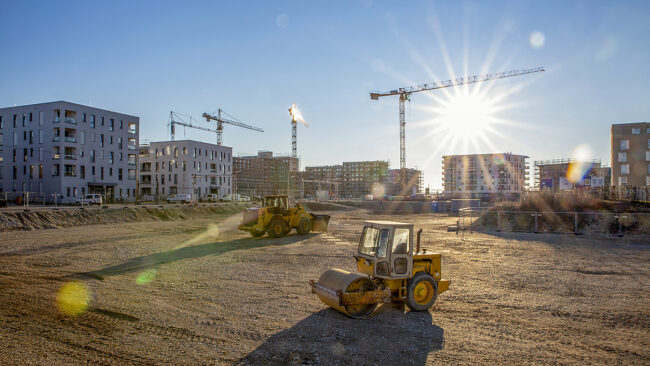Working at height or in trenches, using machinery and tools, working in unstable or unpredictable environments, weather conditions... This is just a selection of the potential risks faced by construction companies. The legislators want companies to give their workers better protection and have therefore modified the rules on insurance. What exactly has changed?
Starting in 2024, important changes have been made to the rules on work accidents in the construction and wood sector. One of the most significant is that companies in the construction sector with an aggravated risk classification are now required to cooperate with Constructiv rather than directly with their work accident insurer. Companies in the wood sector must work with Woodwise as the recognised health and safety body for the wood and furniture sector.
There are various reasons for the shift from cooperation with insurers to specialist bodies such as Constructiv and Woodwise, and it has numerous advantages:
- In-depth expertise: Specialist bodies have in-depth knowledge of the specific risks and challenges in the construction and wood sector, which they can draw on to develop and implement targeted and effective preventive measures.
- Focus on risk prevention: Constructiv and Woodwise place a strong emphasis on risk prevention through training, advice and support. This proactive policy helps companies prevent work accidents instead of just reacting to incidents.
- Better support: Specialist bodies provide extensive support in implementing safety measures and improving working conditions, including mandatory safety training, advice and monitoring of safety statistics.
- Regulatory compliance: By working with specific risk prevention bodies, companies comply with the latest regulations and guidelines that are specifically designed to improve safety in the construction and timber sector. This helps them to reduce their legal and financial risks.
For companies that continue to receive support from the insurer after the aggravated risk notification, the term of the policy will automatically be extended for three years. However, notice of cancellation can be given by the insurer to companies overseen by a specific risk prevention body, such as that for the construction and timber sector, and the automatic contract extension does not apply.
Note: you always have the right to object if your company receives an aggravated risk classification – if a specific activity has changed or been discontinued, for example, or if preventive measures have been taken that would prevent similar accidents from occurring again.
The changes to the rules on work accidents in the construction and timber sector in 2024 mark an important step towards a safer working environment. The requirement to work with specialist bodies means that companies can benefit from improved safety measures and support, which ultimately results in fewer work accidents and higher productivity.




